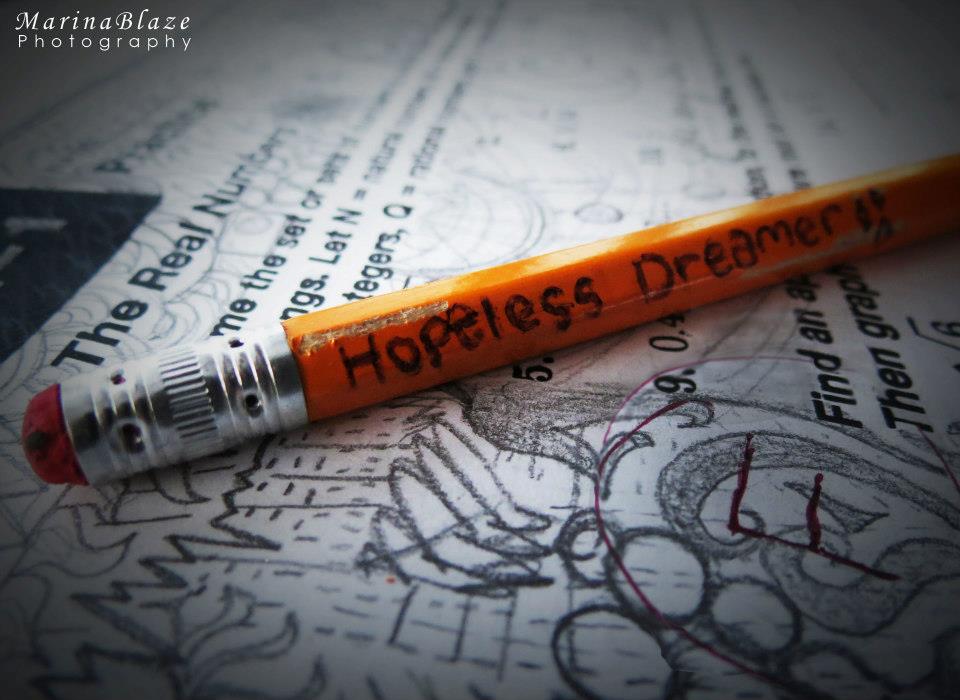I’m consistently shocked by how many young kids and teens say they can’t write. I write say they can’t write because they can actually write – if given the right tools and motivation. Unfortunately, the right tools and motivation aren’t often given to kids and teens within the school system. Heck, sometimes even in creative writing classes, students aren’t given some real know-how into what it really means to write. So many kids and teens right now – many who will soon no longer be students but adults in the real world – are actually completely clueless as to how to really write.
It suddenly dawned on me the other day that I was never taught how to write. Not really. I learned how to write from reading book after book after book after book. I basically studied what worked and what didn’t, and taught myself how to write. I was lucky enough to have some excellent teachers in that subject area in middle school and high school who added to that knowledge throughout the years, but you know how curriculum goes. Teachers gotta teach what they gotta teach, and they do the best they can. I’m sure there must be a few teacher gems out there right now who still touch on what writing really means; and when I say writing, I’m not talking about spelling, or grammar, or how to format an essay or paper although all of those things are equally important. I’m not even talking about just creative writing. I’m talking about the basic underlying knowledge and insight that every writer needs – whether student, novice, or professional – that they can then use to discern what to do in even the toughest of writing situations.
Let me ask you this: Would you get handed car keys and a license without ever being taught how to drive? No way! There’s usually a lot of practice driving, and often even an entire course involved. Of course, there are the few cases where driving comes natural, and so it is with writing. But for those of us who have no idea what to do, writing without any prior understanding is pretty much the equivalent of tossing some car keys at us and saying, “See ya”.
So what do I need to know about writing?
The first thing you need to know about writing is the real purpose of writing. To write is to convey an idea, communicate a thought, or tell a story in the most effective and powerful way possible. In school, honestly the point of writing is just to complete an assignment. Even for me, a writer (and yes, I considered myself a writer even then in middle school and high school), with a lot of my assignments I wasn’t really writing an essay to prove a point, although in many of those cases I did my absolute best. I was writing the essay to git her done.
Yes, I know that’s the point of school. To complete assignments so that you can graduate and learn the things that will serve as a platform to jettison you out into the real world. But shouldn’t our writing education be about more than just racing to finish a five-page or five-paragraph essay? Or stringing some perfect-grammar sentences together without any idea what it is you’re really writing? Or writing a short story by the “Hero’s Journey” (which is a great writing tool by the way, don’t knock the “Hero’s Journey”) without ever really getting the benefit of understanding why it is you’re writing about your “hero” in the first place?
What I find most sad about the lack of real writing being taught in schools is that good writers and not-so-great writers will equally struggle. In a way, I was fortunate to actually know how to write in school; I was also unfortunate because I placed an enormous amount of pressure on myself to meet standards by which no young writer should ever be measured. Some young writers suffer in this same system because, with the limited writing resources and knowledge they’re given, they don’t know how good they really are. Then you have the young writers that perhaps need a little bit of work, or only excel in one writing area – say you suck at spelling and grammar, but you’re awesome at telling a story. Right now, the current model for individual writers doesn’t work.
So what will work?
Some might pose the argument that some kids and teens just don’t like to write. I don’t buy that. Everybody has an imagination, everybody has a creative power inside of them. Now, it may be true that some kids and teens (and adults) may not like to write in a literal sense – they may not enjoy a pen or pencil in hand, or typing out words, or putting together cohesive sentences that flow. Sometimes even I don’t enjoy any of that. But everybody – no matter who you are – has a story to tell, a truth to speak, an opinion to share, words to say. I guarantee if a writing class at any level focused on those things first and foremost, you’d get the attention of nearly everybody in the room.
Writing rules (such as spelling, grammar, format, etc.) can only be used as tools to improve. But to really write, you need passion, and passion is universal. It’s only a matter of finding the ways to touch it.
~
What are your thoughts on social writing myths, and what would you say is the most important thing to know about writing?
~
The photo featured with this post is by Marina Blaze Photography!
Check out more of her photos on Facebook.
~

